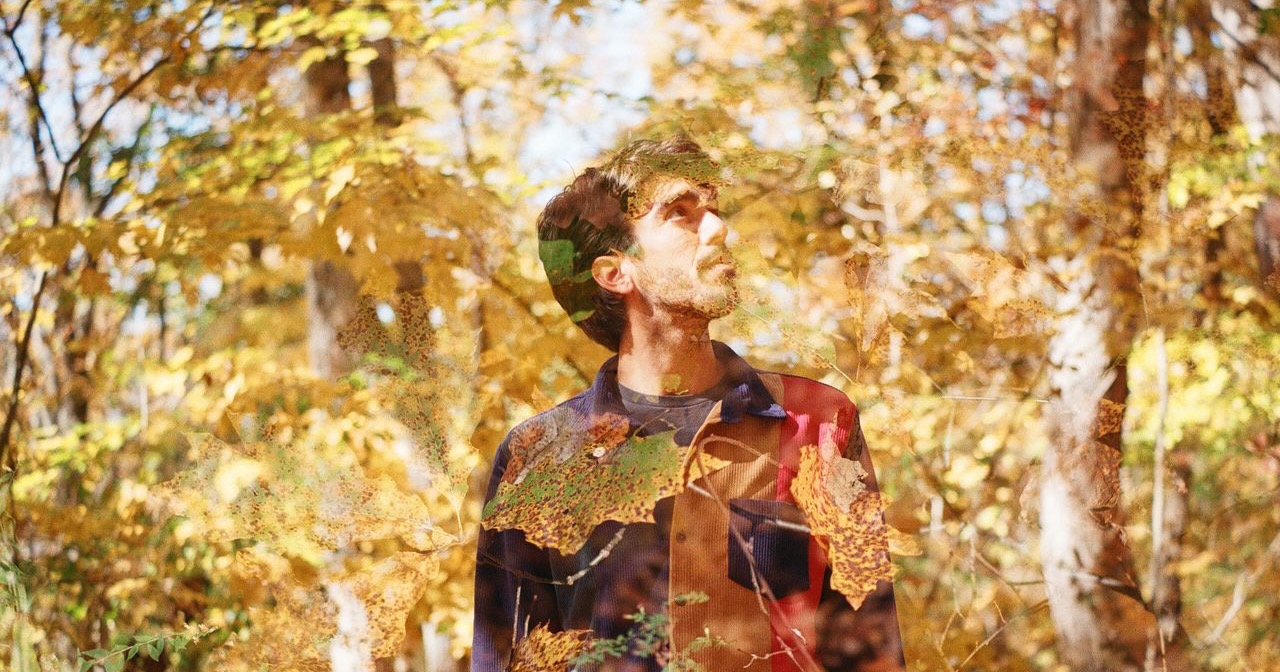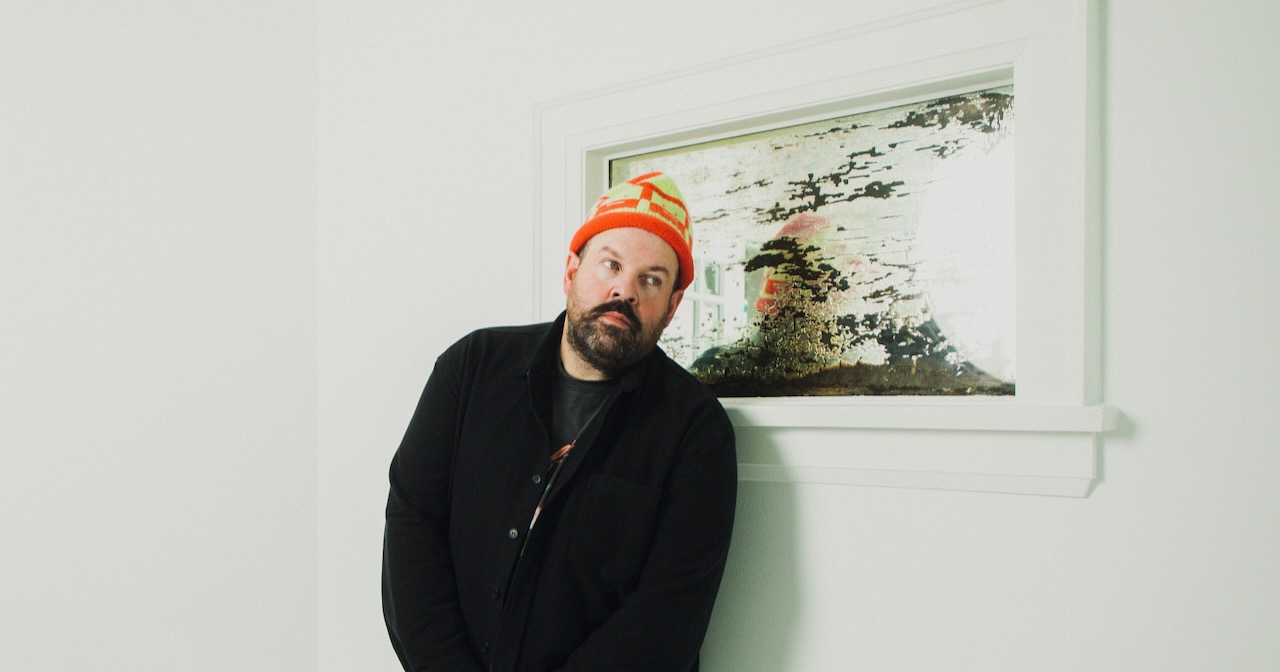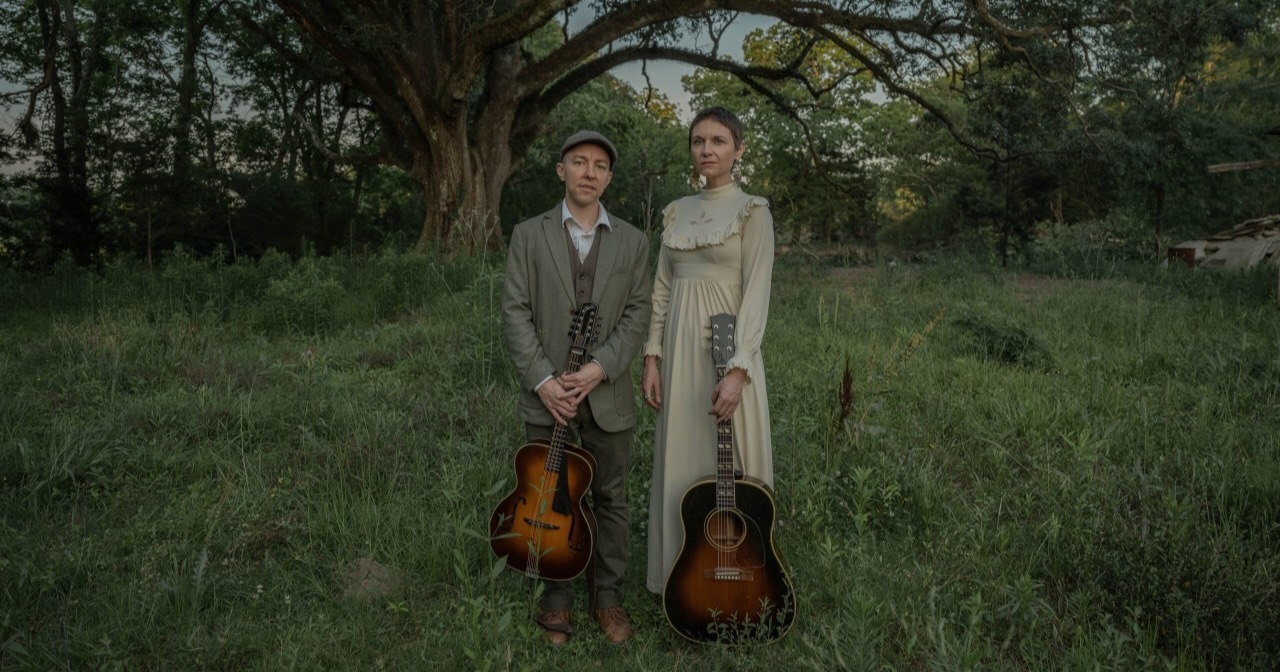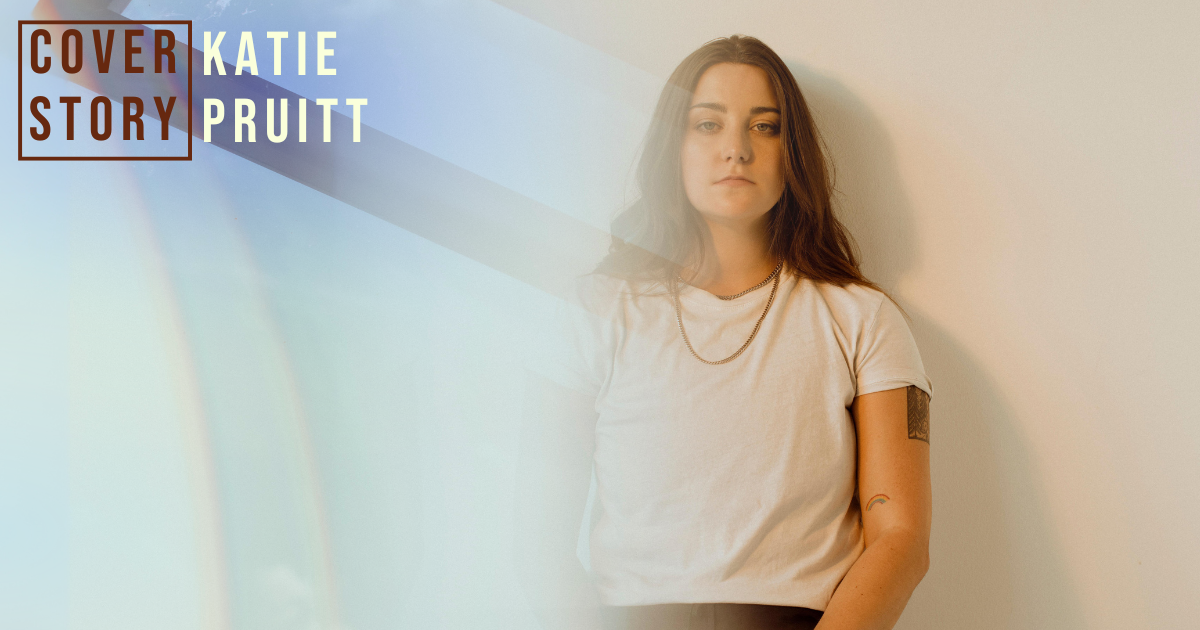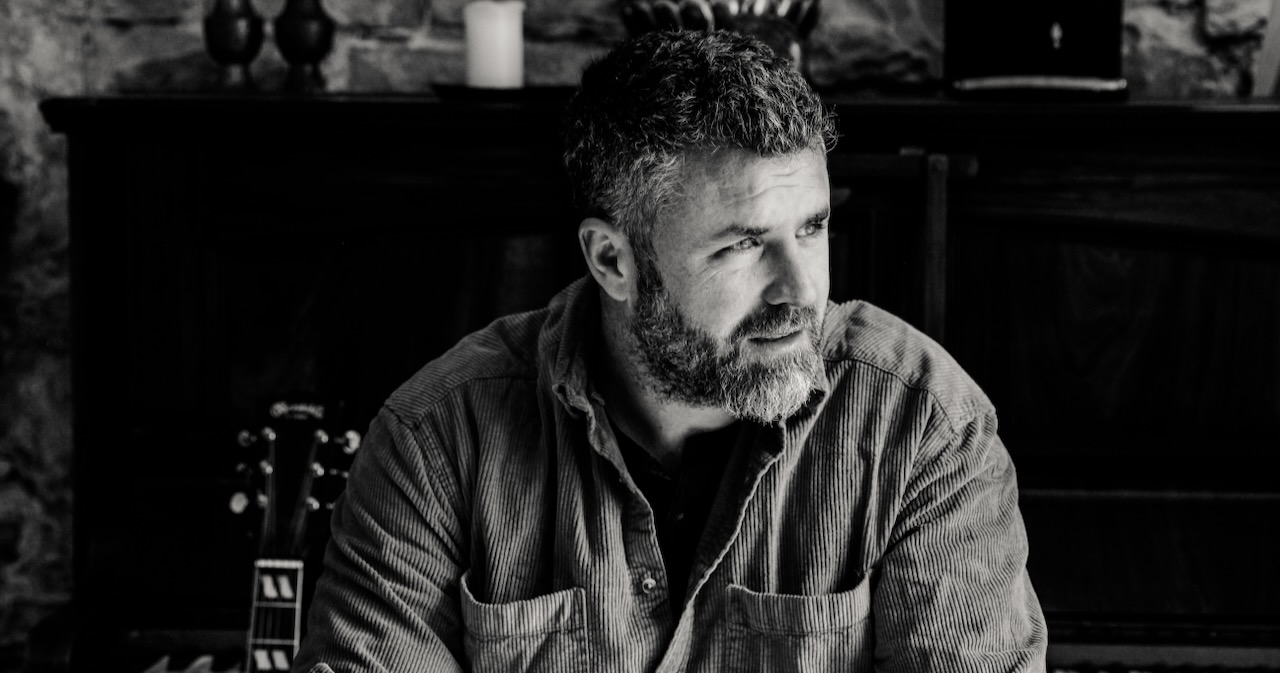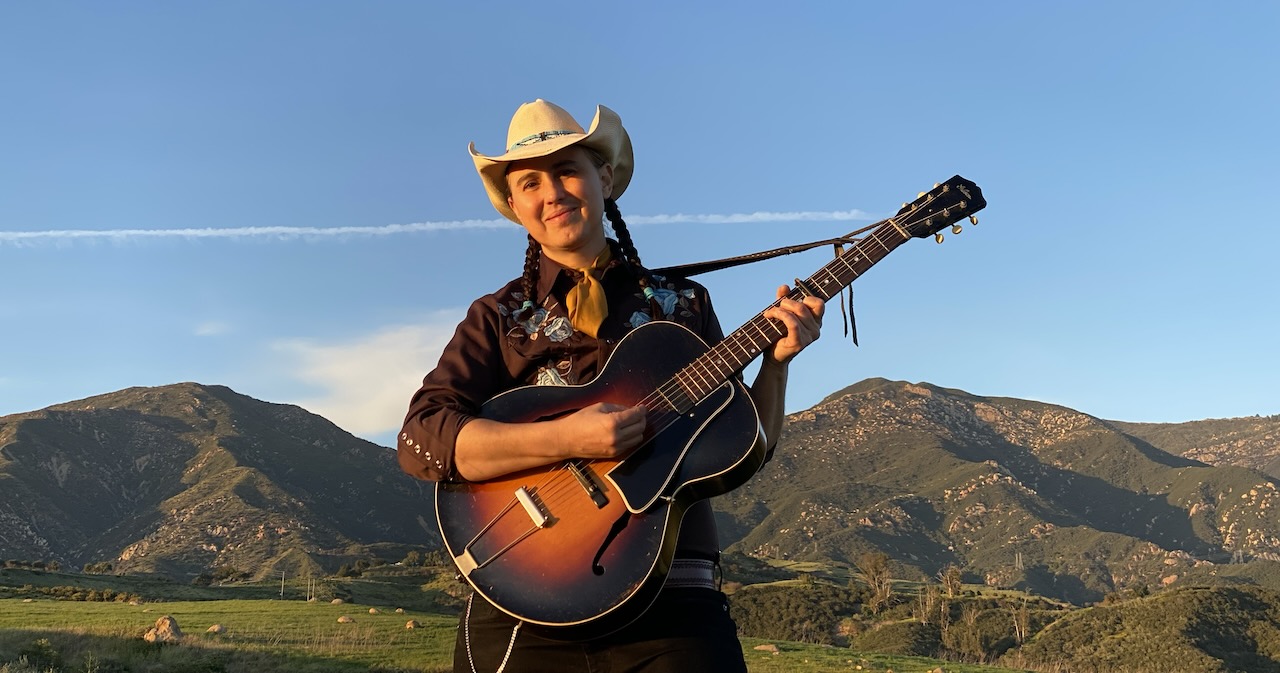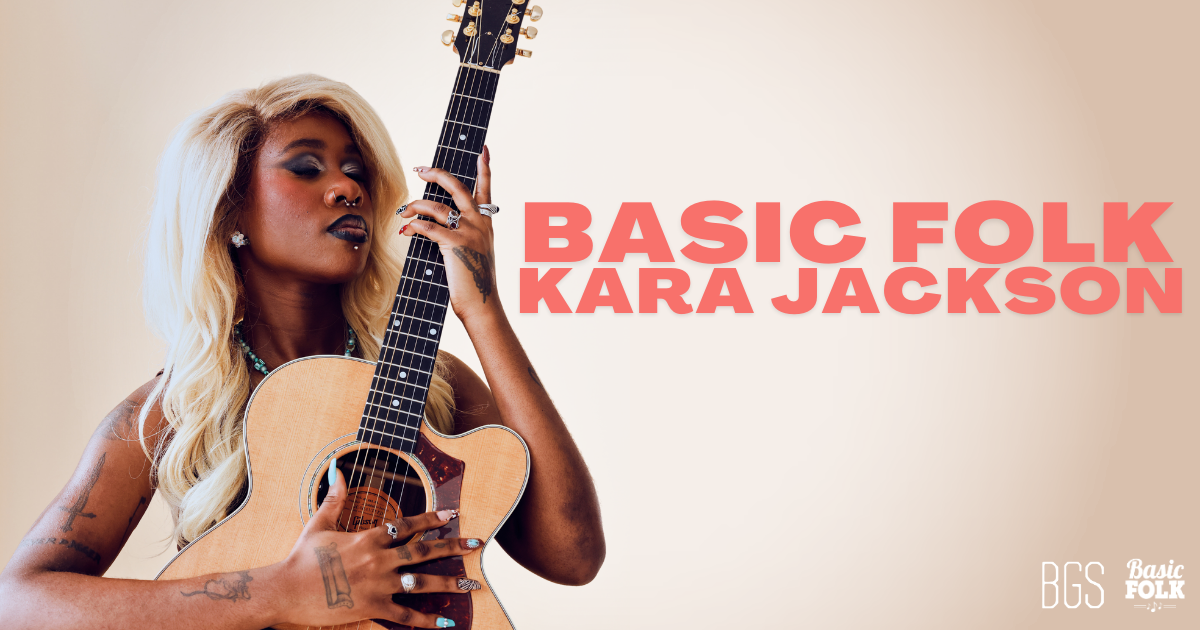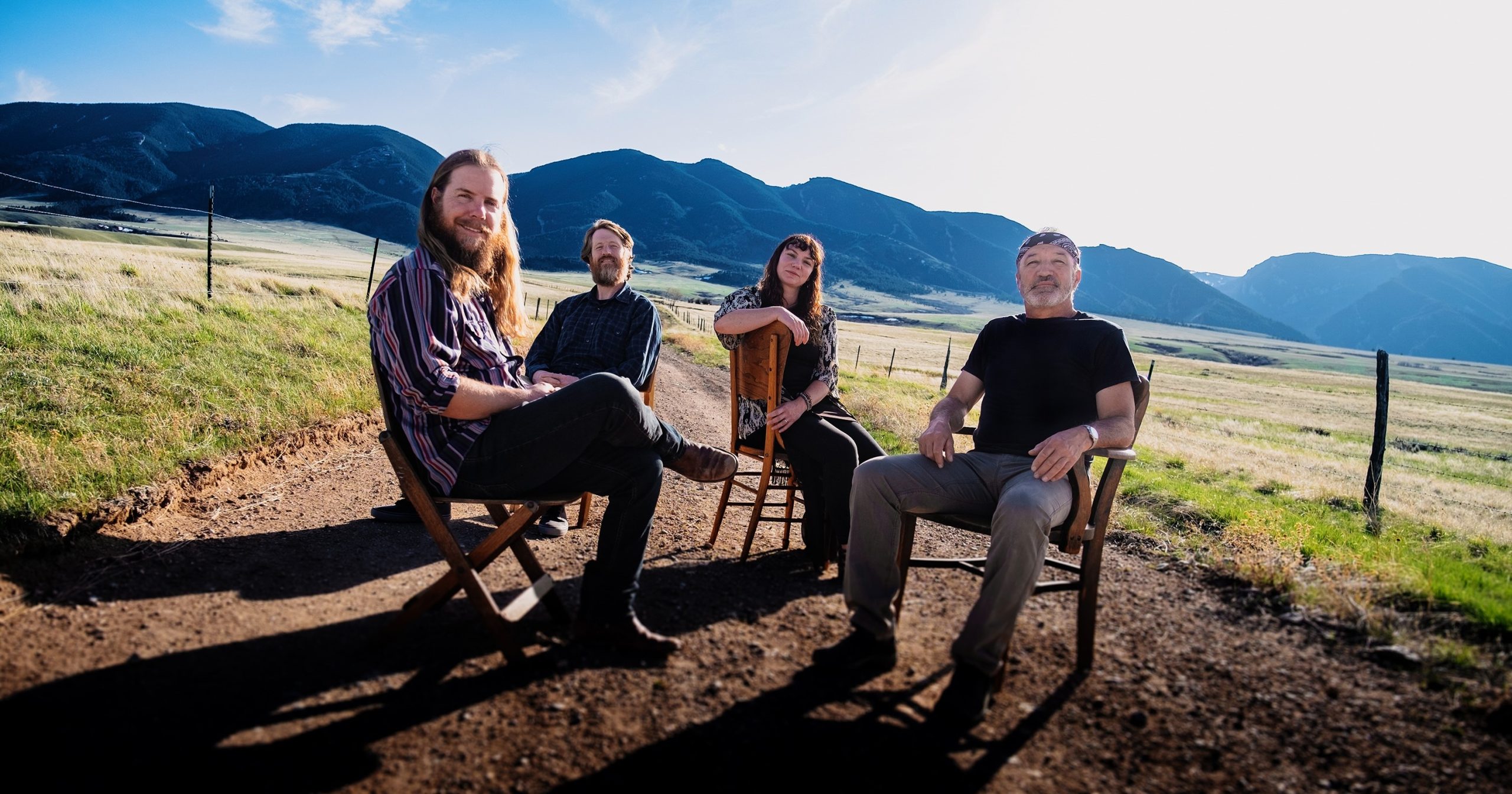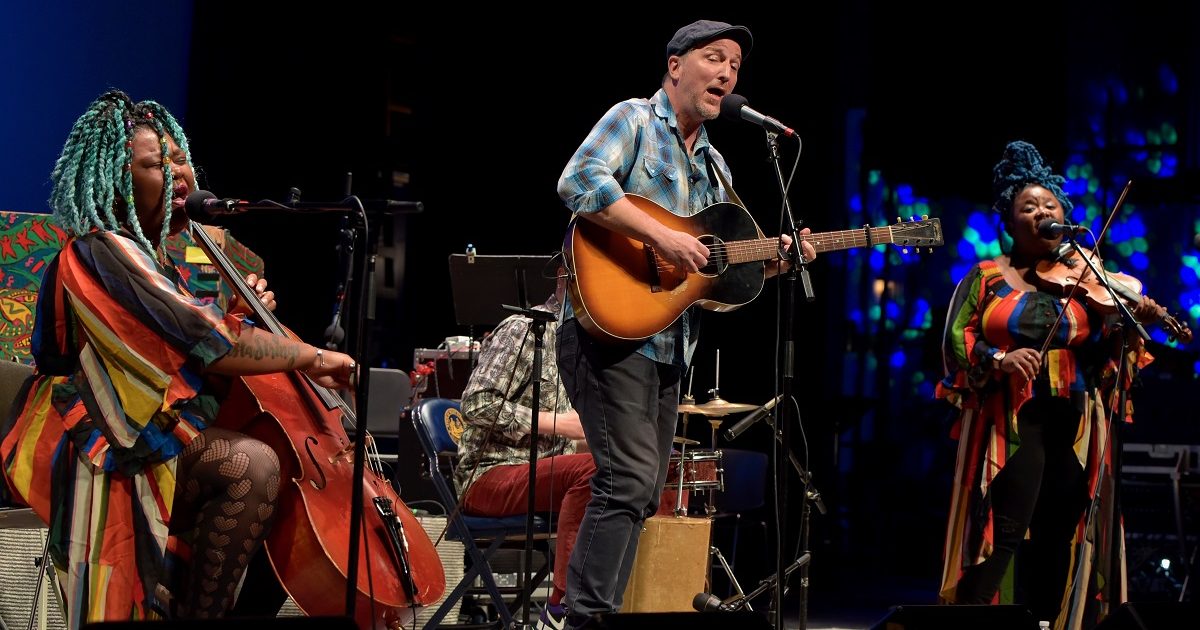Artist: Lyle de Vitry
Hometown: Originally Lancaster, Pennsylvania, but I now live in Asheville, North Carolina.
Latest Album: Door Within A Dream
Personal Nicknames (or rejected band names): I have a lot of nicknames in my family. Pan, Chi, Fluffy Bundun, Lymees, Lyman are a few classics.
Which artist has influenced you the most – and how?
Nick Drake has been a long time favorite and he’s certainly one of my biggest influences. When I was about 14 or 15, I remember diving deep into his records and being so completely blown away by his guitar playing. I had never heard anyone play like that, and it opened up a whole world for me. At that point I wasn’t writing my own music, but I learned some of Nick’s songs and began exploring his tunings, which, to me, were so wonderfully strange and emotionally evocative.
When I started writing my own songs I would often use some of these tunings, as well as some other open tunings I picked up along the way from other artists. Eventually, I began inventing some of my own tunings, which is something I’m not sure I would have been as likely to do had I not delved so deeply into Nick’s work. Playing a guitar in an unfamiliar tuning helps me to get into that childlike, playful state where I’m making discoveries and delighting in them. Like trying ice cream for the first time or leaping into your first icy cold river. In those moments, there is no time or space to feel self-conscious – for your full attention is fixated on this new joyful experience.
I tend to be drawn to artists who sing more softly. In addition to Nick Drake, some of my greatest influences and inspirations include Jose Gonzalez, Sufjan Stevens and, in more recent years, Adrianne Lenker. It’s funny though, I actually have a really big voice when I want to use it – and at one point was considering pursuing a professional career in opera. We’ll see, I might decide to open up my voice a bit more as the years go by and I continue to develop my style. It won’t be opera, but I’m just excited about experimenting with the way I sing, volume level, vibrato, tone, range, etc.
What other art forms – literature, film, dance, painting, etc. – inform your music?
When writing a song, I try my best to write lyrics that could stand alone as a poem. If I’m feeling stuck, I try reading some of my favorite poetry. Mary Oliver, Wendell Berry, and translations of the German poet Rainer Maria Rilke all come to mind.
I’ve always especially loved the work of Mary Oliver. She wrote a lot while walking through the woods and observing the world around her – always practicing looking with as much reverence as she could muster. I try to slow down and notice things like she did. It’s really a practice of awe and amazement – and often with regard to things that appear simple at first glance or that I might take for granted. Or that I just wouldn’t have noticed if I hadn’t waited a little longer and been more patient.
Along with poetry, visual art is another art form that plays a big part in my creative life as a songwriter. Sometimes when I’m experiencing a creative block, I’ll go into a period of just focusing on making really colorful and vibrant abstract visual art. It helps me get out of the self-judgment loop, and I find myself getting back to that kid that’s inside, playing with shapes and color just because it’s fun and not because I hope anyone will think it’s any good. And then I can take that mindset back with me when I return to my songs.
What was the first moment that you knew you wanted to be a musician?
I remember singing my song, “To Be Adored,” for a close friend shortly after I had written it. When I looked up after finishing, he was smiling at me ear to ear and had tears streaming down his face. This same thing happened a few other times with other people – and I began to realize that I could really touch others with my music on a deep emotional level. I’ve always loved music with nostalgic and maybe even sad undertones, and so a lot of the music I make has this kind of feeling. The thing is, “sad” music always made me feel kind of… good? From the beginning, I think I knew I wanted to make sounds that could help people heal in some way, or at least serve as a form of comfort. When I started seeing the impact my music was having on people in real time, I knew I wanted to continue writing and sharing – with the hope that I too could be a healer and could help make the world a little more beautiful.
If you didn’t work in music, what would you do instead?
I would probably be a visual artist/art teacher. Making art has always been one of my favorite things to do – and, as I mentioned, it still sometimes plays a role in my creative practice at times. I’m often thinking about bigger paintings, murals, or other visual projects I want to be making, but usually I’m spending my free time playing music these days. I keep thinking about getting into wood block printmaking though and I just ordered some carving tools – albeit with the intention of creating some merch!
I do have a part-time day job assembling and setting up banjos for Pisgah Banjo here in Asheville – but it’s the most music-related day job I’ve ever had. When I’m done setting up a banjo part of my job is playing it to make sure the set up feels good, which I always enjoy. I also do a bit of private music teaching.
What would a perfect day as an artist and creator look like to you?
I usually need a lot of uninterrupted solo time to really get into a creative flow. It’s also super helpful when I can put my computer and phone away for the day and replace them with poetry books and/or nature walks. And as much as I love being out in nature, I must admit I would still want to retain my creature comforts. I’m envisioning waking up in a cozy cabin close to a lake, stream, or river. I’d come to consciousness feeling well-rested, listening to the sounds of insects and birds and the laughter of the water. Maybe it’s raining softly on the roof? But then the sun comes out, and it’s a perfect 75 degree day, breezy. I’d give myself ample time to rest and take breaks throughout the day, swim, exercise, cook, and eat delicious food… sign me up!
Photo Credit: Rita Kovtun
